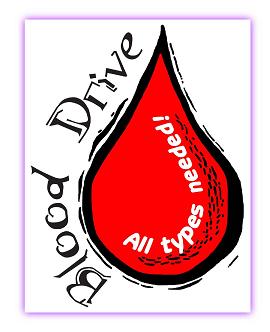

There will be a pre-valentine blood letting activity to be held at Mary Mediatrix Medical Center, come February 13, 2009. The said event will start at 8:00 am to 5 p.m. at VLM Hall.
Here are some tips on how to prepare yourself for blood letting.
- Drink plenty of water the night and morning before you donate. The leading cause of faintness and dizziness is a drop in blood pressure. Getting lots of water into your body helps keep your blood pressure up. Don’t drink caffeinated drinks, however, as they actually cause your body to expel water.
- Eat breakfast to help keep your blood sugar up. This will help you feel better after you donate blood and ward off any light-headedness. If you think you might be nauseous during donation don’t eat immediately before your appointment.
- Avoid fatty foods for twenty-four hours before you donate. Increased fat in your blood stream might make it impossible to get accurate readings on some of the mandatory screening tests conducted on samples of your blood after you donate. If they can’t run all the tests, they have to discard your donation. You don’t want all your effort wasted!
- Eat iron rich foods for 2 weeks before your appointment; for example, spinach, whole grains, eggs, and beef. Also, Vitamin C helps increase iron absorption. Your iron level will be tested before you donate to protect you from donating blood you really need and to ensure that recipients receive a potent product.
- Ask for a blanket if your hands or feet start to feel cold. This is a sign that your blood pressure is dropping. A nice warm blanket might help you to relax.
- Take a deep breath before the needle goes in or pinch yourself to create a distraction. If you hold your breath you might pass out. If it hurts it’s okay to cry.
- Relax. Nervousness can also cause your blood pressure to drop and lead to dizziness. Talk to the person taking your blood if it will help you feel better, ask him or her to explain everything he or she is doing, chew gum, sing a song recite something, contemplate the outcome of a book you’re reading or a TV series you follow, listen to your mp3 or CD player, think about the end result of your donation, ask the person taking your blood if they know of any cases where donated blood made the difference between life and death.
- Have a snack after the donation. Drink some juice and eat a light snack with a high sugar content to get that blood sugar back up.
- Rest for a few minutes enjoying your snack before leaving the donation site. Let your body adjust a bit before rushing off to the rest of your day. Plan to spend fifteen minutes in the canteen.
- Avoid driving if you feel the least bit faint. Donating blood is not dangerous, but driving is, and you could be seriously injured if you faint while driving. If you are not well after your donation, call someone to come pick you up.
- Eat a meal high in protein after your donation: beef, chicken or legumes are excellent choices. You should also eat some vegetables and be sure to drink plenty of water. All these things will help your body make more blood for you soon.
- Avoid heavy lifting for the rest of the day. This includes weightlifting at the gym, of course as well as working at any job that requires heavy lifting. If you have such a job, you should schedule your blood donations for Fridays. Heavy lifting will almost certainly cause the vein to reopen and bleed into your arm causing a large, painful bruise. If you give it 16-24 hours to heal properly, you shouldn’t have any trouble.
- Avoid strenuous exercise for the rest of the day. Don’t go running or dancing or bicycling until tomorrow. You’ve done enough for today. You helped save a life!
source: WikiHow
Share blood, Save LIVES
 WOWBatangas.com Your Source of Great News and Stories from the Province of Batangas, Philippines
WOWBatangas.com Your Source of Great News and Stories from the Province of Batangas, Philippines



